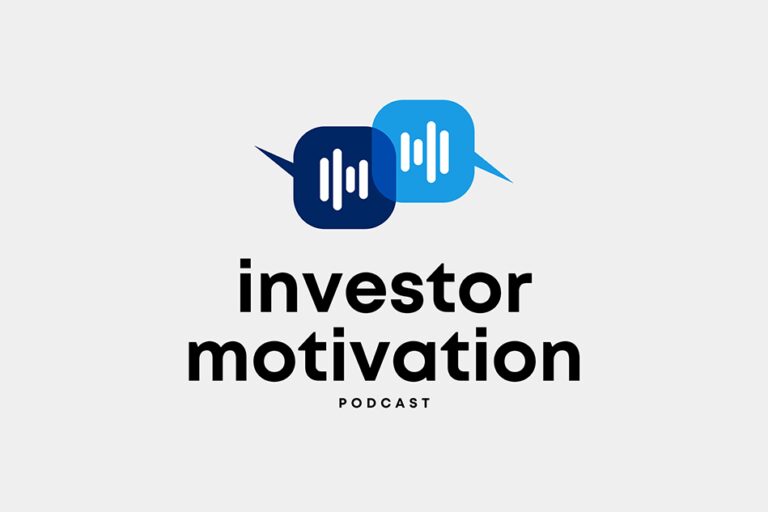How much is Enough? The Retirement Balancing Act
How much is enough to retire? It’s the question financial advisers Robert Goudie and Rachael Todman hear the most — but the real challenge isn’t just about the number. In this…

How much is enough to retire? It’s the question financial advisers Robert Goudie and Rachael Todman hear the most — but the real challenge isn’t just about the number. In this…

Despite a slowdown in Australian economic and productivity growth in the last five years, Australia’s economy is usually considered strong and resilient when compared with other developed nations. Given our economic strength, why would anyone want to invest anywhere else?
To answer this question, let’s consider what stocks might be included in a share portfolio with an international focus.
For simplicity purposes, we will look into the portfolios of a leading provider of index managed funds and their top 10 holdings. These funds tend to be passively rather than actively traded, and seek to reflect their chosen share index over the medium-to-long term.

In this episode of Investment Motivation, Financial Advisers Rachael Todman and Robert Goudie share real client stories and how personalised financial advice has made a lasting difference. From uncertainty to…

A client once shared a poignant regret:
“When I was working and the kids were young, I saved too much. It restricted what we did when the family was together.”
This simple reflection struck a chord with me. It got me thinking about the delicate balance between saving for the future and living fully in the present. While we all know the importance of financial security, is it possible to save too much—at the expense of the moments that matter most?

With 30 June fast approaching, Rob Goudie and Rachael Todman run through a few key things to think about before the end of financial year. From topping up your super…

A client once shared a poignant regret:
“When I was working and the kids were young, I saved too much. It restricted what we did when the family was together.”
This simple reflection struck a chord with me. It got me thinking about the delicate balance between saving for the future and living fully in the present. While we all know the importance of financial security, is it possible to save too much—at the expense of the moments that matter most?

Just retired and wondering what comes next? In this episode of the Investment Motivation podcast, Rob Goudie and Rachael Todman walk through the key financial decisions that come with the…

A client once shared a poignant regret:
“When I was working and the kids were young, I saved too much. It restricted what we did when the family was together.”
This simple reflection struck a chord with me. It got me thinking about the delicate balance between saving for the future and living fully in the present. While we all know the importance of financial security, is it possible to save too much—at the expense of the moments that matter most?

A client once shared a poignant regret:
“When I was working and the kids were young, I saved too much. It restricted what we did when the family was together.”
This simple reflection struck a chord with me. It got me thinking about the delicate balance between saving for the future and living fully in the present. While we all know the importance of financial security, is it possible to save too much—at the expense of the moments that matter most?

Markets rise and fall — but how should you respond? In this episode, Rob and Rachael explore the emotional side of investing and why staying invested often delivers the best…

A client once shared a poignant regret:
“When I was working and the kids were young, I saved too much. It restricted what we did when the family was together.”
This simple reflection struck a chord with me. It got me thinking about the delicate balance between saving for the future and living fully in the present. While we all know the importance of financial security, is it possible to save too much—at the expense of the moments that matter most?

Markets go up—and they come down. In this video, we talk about what really matters during periods of volatility: your behaviour as an investor. We explain why reacting emotionally…

A client once shared a poignant regret:
“When I was working and the kids were young, I saved too much. It restricted what we did when the family was together.”
This simple reflection struck a chord with me. It got me thinking about the delicate balance between saving for the future and living fully in the present. While we all know the importance of financial security, is it possible to save too much—at the expense of the moments that matter most?

Ever wondered how Australia’s wealthiest individuals invest? In this episode, we break down the key strategies used by the richest Australians, from diversification and asset allocation to investing in…

Retirement planning isn’t just about the final years before you stop working—it starts much earlier. The financial mistakes you make in your 20s, 30s, and 40s—like taking on too much…

Everyone wants to build wealth, but with so much financial noise—crypto schemes, margin lending, and “trade your way to riches” promises—it’s easy to get lost in the hype. The truth?…

Not all financial advice businesses invest the same way. In this episode, we explore how Consortium Private Wealth has developed its unique investment approach over the past 25+ years. Rob…

Planning for retirement can be challenging enough, but when there’s a significant age difference between partners, it adds another layer of complexity. Different life stages often mean differing priorities, timelines,…

The final quarter of 2024 reflected a mixed economic landscape. While consumer spending and equity markets showed resilience, persistent inflation, cost-of-living pressures and a cooling housing market have tempered optimism….

Share markets are renowned for taking unexpected downturns and while history shows that markets eventually recover, this rebound in value can occasionally take time. Investors concerned about this risk might…

The days leading to Christmas, holidays and celebrations are exciting, frenetic times. They’re a whirl of parties and social engagements, gifts and food to be purchased and travel arranged. The…

In this episode, we explore HUB24 (ASX: HUB), a $5.9 billion diversified financial services business known for its cutting-edge platform solutions and cloud-based technology. With a 7.5% share of the…

Struggling to keep track of multiple debt payments each month? For many Australian homeowners, juggling different debts—whether it’s credit card balances, personal loans, or mortgage repayments—can become overwhelming. Debt consolidation…

In this episode, we analyse CSL Limited (ASX: CSL), a $134 billion market cap biotechnology company specialising in plasma-derived therapies, vaccines, and rare disease treatments. Operating in over 100 countries…
End of content
End of content